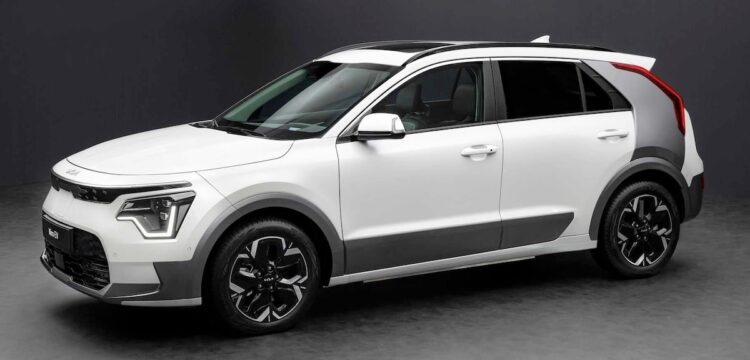Introduction: Understanding Car Tuning and Value Addition
Car tuning is a popular hobby and investment for auto enthusiasts worldwide. It involves modifying a vehicle’s engine, aesthetics, handling, or tech features to enhance its performance or appearance. But the question remains: does tuning add financial value to your car, or is it more about personal satisfaction? Tuning’s potential to add value largely depends on the type of modifications, the car model, and the purpose behind the tuning.
Whether you’re looking to boost resale value or simply improve your driving experience, tuning can transform your car significantly. From performance upgrades to aesthetic customizations, let’s explore how tuning might—or might not—add value to your vehicle.
Types of Car Tuning
Tuning isn’t a one-size-fits-all concept; it can focus on various aspects of the car, each with a different effect on value. The main categories are:
- Performance Tuning: Focused on power, speed, and engine optimization.
- Aesthetic Tuning: Aimed at enhancing the car’s visual appeal.
- Handling and Control Tuning: Involves improvements to handling and safety.
Understanding these categories helps assess how each can contribute to a car’s market or resale value.
Performance Tuning: Speed and Power
One of the most common reasons people tune their cars is to boost performance, especially speed and horsepower. Performance tuning generally focuses on the engine, with upgrades like turbocharging or supercharging. By increasing horsepower and torque, the vehicle can achieve faster acceleration and potentially a higher top speed.
Engine Optimization:
Modifications such as ECU remapping allow drivers to change fuel and air settings for more efficient performance. Enhanced engine performance can add value, especially for sports cars, where speed and power are major selling points. However, performance tuning can also have a downside, such as reduced fuel efficiency, which may deter everyday buyers.
Fuel Efficiency and Engine Wear:
High-performance tuning often increases fuel consumption and puts additional strain on the engine, potentially leading to more frequent maintenance. If the prospective buyer is concerned about upkeep costs, this can negatively impact resale.
Aesthetic Tuning: Exterior and Interior Modifications
Car tuning isn’t only about what’s under the hood. Visual and aesthetic upgrades can make a car stand out, improving its appeal to certain buyers. Exterior modifications like custom paint jobs, vinyl wraps, spoilers, and body kits can give the car a unique look. Some car enthusiasts are willing to pay a premium for a car that looks distinct, provided the modifications are tasteful and professionally done.
Custom Paint and Vinyl Wraps:
High-quality paint jobs and wraps can increase the car’s visual appeal, but they’re costly and may not appeal to everyone. Buyers often look for well-executed aesthetic upgrades in a color and style that aligns with their tastes.
Interior Upgrades:
Upgrades to the seats, lighting, and infotainment systems can enhance the car’s interior comfort, functionality, and appearance. Leather seats, LED lighting, and advanced sound systems add value for potential buyers who prioritize comfort and entertainment.
Handling and Control Enhancements
Modifications to handling and control are particularly appealing for those prioritizing a smooth, responsive driving experience. These tuning options might not directly boost a car’s market price but can still add value for enthusiasts or those buying high-performance vehicles.
Suspension Upgrades:
Modifying the suspension system can improve ride quality, cornering ability, and overall handling. A well-balanced suspension can add significant value for sports car buyers but might not appeal to daily drivers who prioritize comfort over performance.
Brake and Steering Enhancements:
Upgraded brakes and steering components provide greater control and safety, which can enhance the car’s resale value. Many prospective buyers find upgraded brakes a practical investment, especially in performance vehicles where safety is crucial.
Does Car Tuning Improve Resale Value?
Tuning can have mixed effects on resale. Some buyers are drawn to the uniqueness and enhanced performance of a tuned car, while others may see it as a potential risk. Modified cars appeal to a niche market that seeks specific enhancements, so the value increase often depends on finding the right buyer.
Market Demand for Modified Cars:
The general resale market may shy away from tuned cars, viewing them as potentially less reliable or more prone to issues. However, niche markets, like collectors and performance enthusiasts, are often willing to pay extra for tastefully modified cars.
Depreciation and Value Impact:
In some cases, tuning can accelerate depreciation due to wear and potential maintenance challenges associated with aftermarket modifications. However, high-quality upgrades can sustain or even increase the car’s value, especially when parts are high-end and professionally installed.
Tuning for a Personal vs. Commercial Market
Determining whether tuning is intended for personal enjoyment or to appeal to a niche market is crucial. Tuning for personal reasons can lead to a great experience, with modifications suited to your taste, while tuning for resale value requires strategic planning.
Personal Enjoyment:
If you’re tuning purely for personal enjoyment, you’re investing in your driving experience, not necessarily resale value. The return on investment, in this case, is the thrill and satisfaction of a custom-built car, not its market price.
Commercial Appeal:
If you aim to sell, modifications should be carefully selected to appeal to potential buyers. High-end parts, reliable brands, and tasteful modifications are generally well-received by performance or luxury car buyers.
The Financial Cost of Tuning vs. Return on Investment
Car tuning can be a significant financial investment, so understanding the cost-to-benefit ratio is essential. Some upgrades yield a better return on investment than others.
Cost Breakdown:
Modifications like turbochargers, body kits, and interior upgrades can be expensive, with prices often reaching thousands of dollars. While these can increase appeal, they may not add enough financial value to recoup the initial cost fully.
Expected Financial Returns:
High-performance cars may see a value increase due to tuning, but everyday cars typically don’t. For an investment-minded tuner, focusing on widely appreciated modifications—like suspension and brake upgrades—might yield a better financial return.
Risks of Tuning: Insurance and Legal Implications
Insurance rates and legal regulations can complicate car tuning. Many insurers consider tuned cars to be at a higher risk, which can lead to increased premiums.
Insurance Implications:
Aftermarket modifications typically increase insurance costs since they elevate the car’s value and risk profile. It’s important to inform insurers of any changes, as undisclosed modifications might void coverage.
Legal Restrictions:
Some regions have strict rules on noise, emission levels, and aesthetic modifications. Exhaust and sound modifications, for instance, are heavily regulated, and failure to comply can result in fines or required reversals of the changes.
How Tuning Affects Long-Term Vehicle Reliability
Performance tuning places additional strain on the car, often reducing its lifespan and reliability. High-performance upgrades can lead to increased wear on the engine and other components.
Potential Issues:
High horsepower increases and aggressive modifications can lead to engine or transmission failures if not properly managed. Routine maintenance becomes even more important to avoid breakdowns.
Maintenance Requirements:
Frequent tune-ups, oil changes, and part replacements become necessary with high-performance modifications, leading to higher ongoing costs and lower resale value.
Types of Cars That Benefit Most from Tuning
Certain cars see more value gained from tuning than others. Sports cars, luxury vehicles, and older models with classic appeal are more likely to retain tuning-based value.
Sports and Luxury Cars:
Performance enhancements, aesthetic upgrades, and tech add-ons resonate well with buyers of high-end sports cars. Tasteful tuning often boosts the resale value of brands like Porsche, BMW, and Audi.
Classic Models:
Older cars with classic appeal can benefit from restoration and tuning. Such upgrades often enhance both performance and market appeal for collectors.
Popular Tuning Trends and Their Impact on Value
Tuning trends shift over time, impacting value differently depending on market preferences.
Turbocharging and Supercharging:
Adding turbo or superchargers can boost the performance value of sports cars, but due to increased fuel usage, they may not appeal to casual buyers.
Body Kits and Aerodynamic Enhancements:
While popular, body kits add more aesthetic than financial value. High-quality kits add resale appeal, but cheaply installed kits might deter buyers.
Environmental Considerations and Tuning
With emissions and environmental regulations becoming more stringent, certain tuning practices may impact a car’s marketability.
Emission Standards:
Cars with heavily modified exhausts may fail to meet emissions standards, complicating resale in regions with strict regulations.
Eco-Friendly Tuning:
Options like electric conversions or efficiency-boosting modifications can appeal to environmentally conscious buyers, aligning with eco-friendly market trends.
Balancing Tuning with Practicality
Finding a balance between power and practicality is essential. Modifications should enhance the car’s performance and aesthetics without compromising everyday usability.
Conclusion: Is Tuning Worth It for Value Addition?
Tuning a car can add value, but it depends on the vehicle, modifications, and the potential buyer’s interests. High-end tuning on performance or luxury cars often increases market value, while everyday cars benefit more from selective modifications. If resale value is your priority, focusing on tasteful, reliable, and practical upgrades is key.
FAQs
Can tuning increase my car’s insurance premiums?
Yes, tuning can increase premiums as insurers may view it as a higher risk.
Which tuning modifications add the most value?
Engine, suspension, and brake upgrades are among the most value-adding modifications.
Is it legal to tune my car?
It depends on your region’s regulations; some modifications, like exhaust changes, may have legal restrictions.
How does tuning affect fuel efficiency?
Many tuning modifications can decrease fuel efficiency, especially those focused on performance.
Will tuning void my car’s warranty?
Most manufacturers will void warranties if aftermarket modifications are detected.








